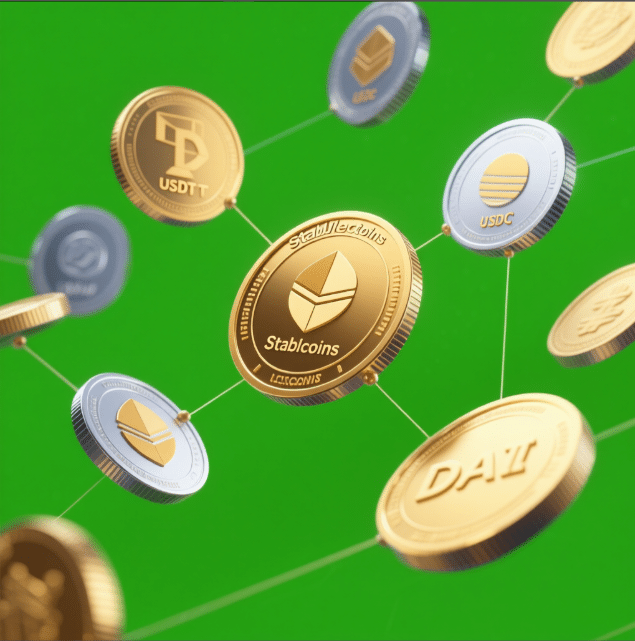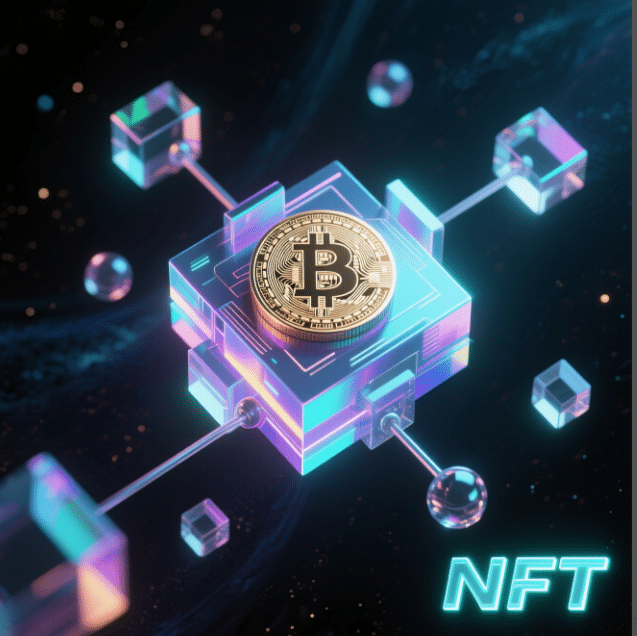
What is Bitcoin and Why Is It Valuable?
August 22, 2025
What Are Stablecoins and Their Use Cases?
August 22, 2025If you’ve been exploring the world of blockchain and cryptocurrencies, you’ve probably heard the term Ethereum more times than you can count. Often referred to as the backbone of decentralized applications (dApps), Ethereum has become much more than just another cryptocurrency. It’s a revolutionary platform that allows developers and businesses to build and run applications without intermediaries—thanks to something called smart contracts.
In this guide, we’ll dive deep into what Ethereum really is, why it matters, and how smart contracts have completely reshaped the way we think about money, agreements, and trust in the digital age. By the end, you’ll not only understand Ethereum’s power but also see why it’s one of the most significant innovations of the 21st century.
What Is Ethereum?
Launched in 2015 by Vitalik Buterin and a team of developers, Ethereum is more than just a cryptocurrency. At its core, it is a blockchain-based open-source platform that allows developers to build decentralized applications. Unlike Bitcoin, which was designed primarily as a digital currency, Ethereum was created to be a programmable blockchain.
Think of Ethereum as a global computer that runs programs exactly as they’re written, without downtime, fraud, or interference from a third party. These programs are known as smart contracts, and they make Ethereum much more versatile than Bitcoin.
The cryptocurrency associated with Ethereum is called Ether (ETH). While ETH can be used just like Bitcoin for payments or as a store of value, its primary function is to fuel the Ethereum network by compensating participants who run smart contracts and validate transactions.
👉 If you’re curious about trading Ethereum in real time, you can check out the ETH/USDT trading pair on Exbix, a secure and global crypto exchange.
The Birth of Smart Contracts
The idea of a smart contract was actually proposed in the 1990s by computer scientist Nick Szabo, but Ethereum was the first platform to implement it successfully on a large scale.
So, what exactly is a smart contract?
A smart contract is a self-executing program stored on the blockchain that automatically executes predefined actions once certain conditions are met. These contracts don’t require lawyers, notaries, or intermediaries to enforce them. The blockchain itself guarantees execution.
For example:
- Imagine renting an apartment using a smart contract. Instead of dealing with paperwork and middlemen, a smart contract could automatically transfer your deposit to the landlord once you send the rent. If you fail to pay, the contract might revoke your digital key. No one can interfere, and no one can cheat.
This simple concept eliminates friction, reduces costs, and builds trust in a way that traditional contracts cannot.
How Smart Contracts Work in Practice
Smart contracts run on the Ethereum Virtual Machine (EVM), a decentralized computing environment that makes Ethereum’s network behave like a giant, shared computer.
Here’s a step-by-step breakdown of how they work:
- Code is Written
A developer writes the terms of the contract in code using a programming language like Solidity. - Deployment on Ethereum
The contract is uploaded and deployed to the Ethereum blockchain, where it becomes immutable (unchangeable). - Triggering the Contract
When predefined conditions are met, the contract executes automatically. For instance, releasing funds, granting access, or transferring ownership. - Blockchain Verification
Every action is verified and recorded by the blockchain network, ensuring transparency and security.
Because these contracts are stored on Ethereum’s decentralized ledger, they can’t be altered, hacked, or stopped once deployed—making them incredibly reliable.
Why Ethereum and Smart Contracts Matter
Ethereum and smart contracts are reshaping industries far beyond cryptocurrency. Here are just a few real-world applications:
1. Decentralized Finance (DeFi)
Smart contracts power DeFi platforms, enabling users to lend, borrow, and earn interest without traditional banks. Instead of trusting a financial institution, you’re trusting code that executes exactly as written.
2. NFTs and Digital Ownership
The NFT (Non-Fungible Token) boom is built entirely on Ethereum smart contracts. NFTs allow digital artists, musicians, and creators to tokenize their work and sell it securely without relying on auction houses or intermediaries.
3. Supply Chain Transparency
Smart contracts can track goods from production to delivery, reducing fraud and ensuring authenticity in industries like food, fashion, and pharmaceuticals.
4. Insurance and Legal Agreements
Insurance companies can use smart contracts to automatically process claims. For example, if a flight is canceled, the contract could instantly refund the policyholder.
5. Gaming and Virtual Worlds
Decentralized games like Axie Infinity and metaverse platforms use Ethereum smart contracts to handle ownership of in-game assets, allowing players to truly own what they buy.
Ethereum vs. Bitcoin: The Key Difference
At this point, you might be wondering: Why can’t Bitcoin do the same thing?
The difference lies in design. Bitcoin was created as a secure, peer-to-peer digital money system. Its blockchain is intentionally limited to maintain simplicity and security.
Ethereum, on the other hand, was designed to be programmable. Its blockchain supports complex logic and applications beyond currency transfers.
In other words:
- Bitcoin = Digital Gold
- Ethereum = Global Computer
Both play critical roles in the crypto ecosystem, but Ethereum’s flexibility gives it a wider range of use cases.
The Challenges of Ethereum
While Ethereum has revolutionized blockchain, it’s not without challenges:
- Scalability – As demand grows, Ethereum struggles with transaction speed and high fees.
- Gas Fees – Users must pay gas (ETH) for every transaction. During peak times, these fees can be extremely expensive.
- Energy Usage (Pre-Merge) – Before Ethereum’s transition to Proof-of-Stake (The Merge in 2022), it used significant amounts of energy similar to Bitcoin. Thankfully, it now consumes over 99% less energy.
- Competition – Blockchains like Solana, Avalanche, and Polkadot are challenging Ethereum by offering faster and cheaper alternatives.
Despite these hurdles, Ethereum remains the leading smart contract platform because of its massive developer community, first-mover advantage, and ecosystem of dApps.
The Future of Ethereum and Smart Contracts
The future looks incredibly promising for Ethereum. With the upgrade to Ethereum 2.0 (a.k.a. the Merge and beyond), the network has become more scalable, secure, and sustainable. Layer 2 solutions like Optimism, Arbitrum, and zk-Rollups are further reducing transaction costs and increasing speed.
We are moving toward a world where Ethereum could power:
- Decentralized identities
- Entire digital governments (DAOs)
- Global financial systems
- Tokenized real estate and property ownership
- Next-gen social media platforms
In essence, Ethereum is laying the groundwork for Web3, the decentralized internet where users own their data, assets, and online presence.
👉 If you’re considering participating in this future, you can start by exploring live markets for Ethereum. Visit the ETH/USDT live exchange page to see real-time prices and liquidity.
Why Smart Contracts Build Trust
The beauty of smart contracts lies in their ability to create trustless systems. Normally, trust is placed in institutions—banks, governments, or corporations. But with Ethereum, the trust shifts from people and organizations to transparent, verifiable code.
This doesn’t mean we won’t need human agreements anymore. But for many repetitive, financial, or digital interactions, smart contracts provide a level of efficiency and reliability that traditional systems simply cannot match.
For example:
- In traditional banking, transferring money internationally can take days. With a smart contract on Ethereum, it can take minutes.
- In traditional business contracts, disputes may require costly legal battles. With Ethereum, the code executes as written, leaving no room for argument.
That’s why many experts believe Ethereum’s smart contracts could one day underpin global finance, supply chains, healthcare, and even governance.
How to Get Started with Ethereum
If you’re inspired and want to experience Ethereum firsthand, here’s a beginner’s roadmap:
- Get a Wallet – Download a crypto wallet like MetaMask to store and interact with ETH and dApps.
- Buy ETH – You’ll need ETH to pay for transactions and interact with smart contracts. A safe place to buy is through exchanges like Exbix.
- Explore dApps – Try decentralized apps in DeFi, NFTs, or gaming to see the technology in action.
- Learn Solidity – If you’re a developer, Solidity is the primary programming language for writing Ethereum smart contracts.
- Stay Updated – Ethereum is constantly evolving. Follow updates, roadmaps, and developer news to stay informed.
👉 Ready to dive in? Begin your journey by trading ETH directly on Exbix through the Ethereum/USDT market.
Final Thoughts
Ethereum isn’t just another cryptocurrency—it’s a revolution in how we interact with technology, money, and trust. By enabling smart contracts, Ethereum has created an open digital economy that removes middlemen and empowers individuals worldwide.
From finance to art, supply chains to gaming, Ethereum’s reach is expanding daily. And as the network continues to scale and evolve, its potential only grows stronger.
Whether you’re an investor, developer, or simply curious about the future of the internet, Ethereum is worth paying attention to. It represents not just a new kind of money but a new way of building systems, doing business, and interacting online.





